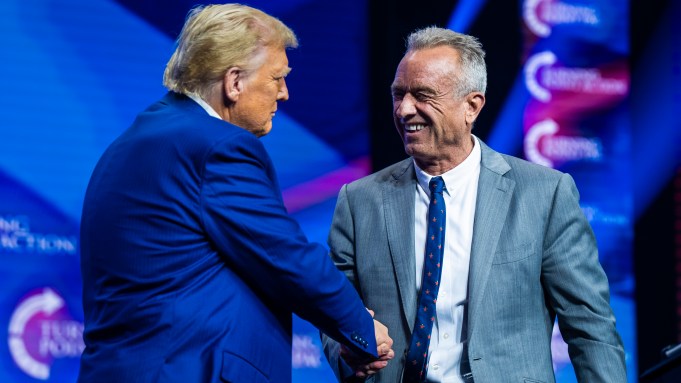The upcoming Wednesday, the 29th of January, is scheduled to witness the U.S. Senate Finance Committee convening to deliberate over the selection of Robert F. Kennedy, Jr. for the position of Secretary at the Department of Health and Human Services. The Senate is slated to discuss the merits and potential challenges of Kennedy’s appointment in depth.
There is a wide array of advocacy groups, numbering over 80 in total, who have expressed an intention to contest Kennedy’s affirmation. Among these are several formidable organizations with national influence, such as consumer advocate group Public Citizen, the NAACP, the Union of Concerned Scientists, and the National Organization for Women.
President Donald Trump officially announced in November 2024 that Robert Kennedy is his choice for the role of the Secretary of HHS. Trump has publicly outlined his expectation that Kennedy should spearhead the effort to eradicate the Chronic Disease plague that is currently gripping the United States of America.
However, Kennedy’s appointment is attracting controversy for numerous reasons, chief among them his notoriety as an avid anti-vaccine proponent. There are concerns that Kennedy, considering his strong views, could deal a decisive blow to the biopharmaceutical industry, which is a key sector in the American economy.
Kennedy is credited with founding the Children’s Health Defense, a reputed nonprofit organization that is tirelessly working towards the elimination of toxic exposure in children. Their ultimate objective is to put an end to the escalating health issues affecting children today, which are reaching epidemic proportions.
Prior to being nominated for the top HHS role, Kennedy had already caused ripples with his very public attacks on esteemed institutions such as the National Institutes of Health and the FDA. Kennedy went as far as to accuse these institutions of corruption, insisting that he would call for a mass dismissal of hundreds of their personnel, if given the chance.
After President Trump announced his selection of Kennedy for the top health role, financial disclosures linked to Kennedy emerged in the public eye. These documents displayed that Kennedy had earned quite a lucrative income from his legal practice over the past couple of years.
Interestingly, Kennedy had also received substantial referral fees for cases he passed on to another firm. This firm, in particular, has been known to stake claims related to injuries purportedly triggered by vaccines, thus drawing his appointment into further jeopardy considering his anti-vaccine stance.
As part of his official ethics declaration, Kennedy asserts that he will abruptly stop receiving the contingency fees mutually agreed upon for the cases he refers, should he be appointed to the HHS position. The commitment is seemingly an attempt to eliminate any perceived conflict of interest ahead of his confirmation.
In fact, Kennedy’s financial disclosures have shed light on several other potential conflicts of interest. Among these is the revelation that Kennedy has significant monetary stakes in a number of biotechnological firms.
More alarmingly, some of these companies he has investments in actively engage in business transactions with HHS related agencies. This throws up yet another potential obstacle to the smooth confirmation of Kennedy’s nomination by the Senate.
In a bid to placate these concerns, Kennedy has made a commitment to completely divest himself of all interests in these companies. He has assured that this process would be completed within the first 90 days following his confirmation as Secretary of the HHS.
With the Senate Finance Committee’s meeting fast approaching, the nation watches in anticipation. It remains to be seen whether Kennedy will successfully navigate these challenges and take the helm of the Department of Health and Human Services.
At this pivotal time, Kennedy’s future hangs in the balance, as well as the future of America’s biopharmaceutical industry and other health-related institutions. Kennedy’s stance and actions, in the coming days, will either make him an effective leader or a pariah in a key administrative role.
Despite the obvious hurdles that lay before him, assistance also comes from unlikely quarters. For each organization that opposes his nomination, there will likely be others rooting for him due to his commitment to children’s health and his willingness to challenge established bureaucracies.
Undoubtedly, the complications surrounding Robert F. Kennedy Jr.’s appointment has thrown a fresh light on the intricate dynamics between the health sector, legislation, and politics. Irrespective of the final outcome, the impacts of this controversial nomination will be remembered for years to come.


